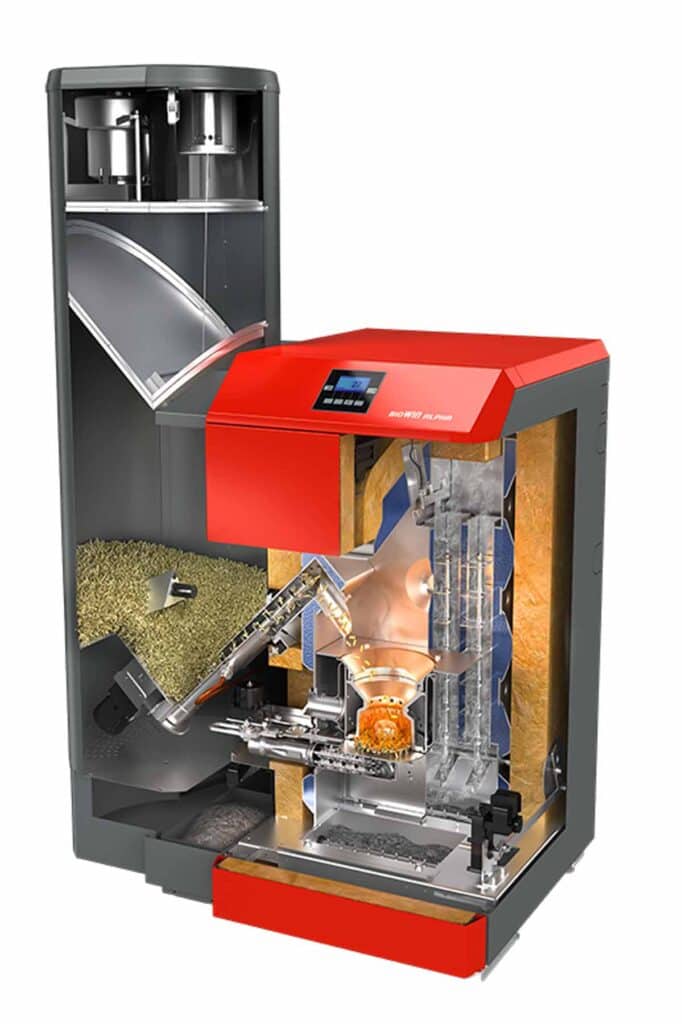It is not illogical to think that harnessing heat and energy from burning organic matter is an archaic, even outdated form of harnessing energy—but today, there have been many advancements in this source of power, from increased efficiency to a wider range of organic matter that can be converted into biofuels. It can seem daunting to invest in switching from traditional power sources to biofuels, and it is not unreasonable to wonder why, as a homeowner or business owner, you might want to consider making this shift. Here are the top benefits of switching to biomass energy:
1. Reduce reliance on foreign nations: It is no secret that the United States consumes many “unsustainable” sources of energy, like fossil fuels, natural gas, coal, and more—many of which are imported from foreign nations. However, America has been steadily building infrastructure for alternative sources of energy production since the successful addition of hydroelectricity to the U.S. energy sector infrastructure at the turn of the 20th century. Not only will this make us a more autonomous nation, but it may also ease tensions in diplomatic relations with other countries and better allow us to focus on bolstering our own economy.
2. Tax incentives: Yes, that’s right! For many businesses or homeowners looking to make the switch to renewable energy, there are often tax incentives that come along with investing in carbon-neutral or carbon-negative sources of power. This is not only a great way to save money each year when filing taxes but can make for especially good Public Relations for businesses who wish to stand out as leaders in their industry.
3. Uses abundant fuels that would otherwise become waste: Part of the beauty of biofuels is that can come from a wide array of different kinds of organic matter—from wood chips to spent or discarded soy, corn, or rotational crops. These pieces of organic matter capture energy from the sun and carbon from the atmosphere during their life cycle—and upon transitioning into biofuel and being combusted, they release that captured energy as well as the captured carbon. This means they are a “carbon-neutral” energy source, or that they do not produce more carbon emissions than they captured during life. While some biomass energy systems rely on biogas, wood chips, or wood pellets that are man-crafted out of waste materials, those with wood pellet boilers also have the opportunity to harvest their own combustible organic matter—from legally harvesting trees from local forests to foraging and curing forest floor litter.
4. Relatively easy maintenance: Fortunately, wood pellet boilers rely on a relatively simple process to harness their energy: burn the biofuel, harness the heat, and harness the energy. Like with any chemical reaction, the matter is altered after the process has come to completion. In the case of a wood chip or wood pellet boiler, the combustion process results in a buildup of ash and soot. As you might imagine, this logically requires some cleaning out about once a week to create more space for future combustion. It is also generally good practice to have your wood pellet boilers serviced annually by a professional installation and maintenance company like Caluwe, Inc.
5. Renewable energy is a long-term investment: Whether or not you subscribe to the notion that humans are responsible for climate change through excessive greenhouse gas emissions, from a pragmatic standpoint, it is not a wise investment to build infrastructure around sources of energy on this planet that are finite, such as petroleum products and fossil fuels. “Renewable energy,” by its very definition, refers to sources of energy that are either constantly in production as part of the process of human existence (such as agricultural waste), or plant matter that has trapped energy from perhaps the ultimate source of power on the planet: the sun.

